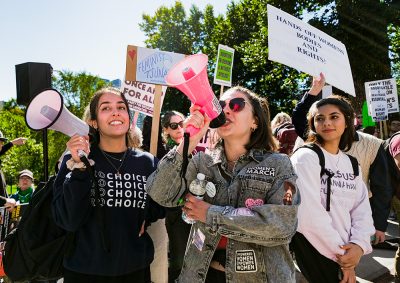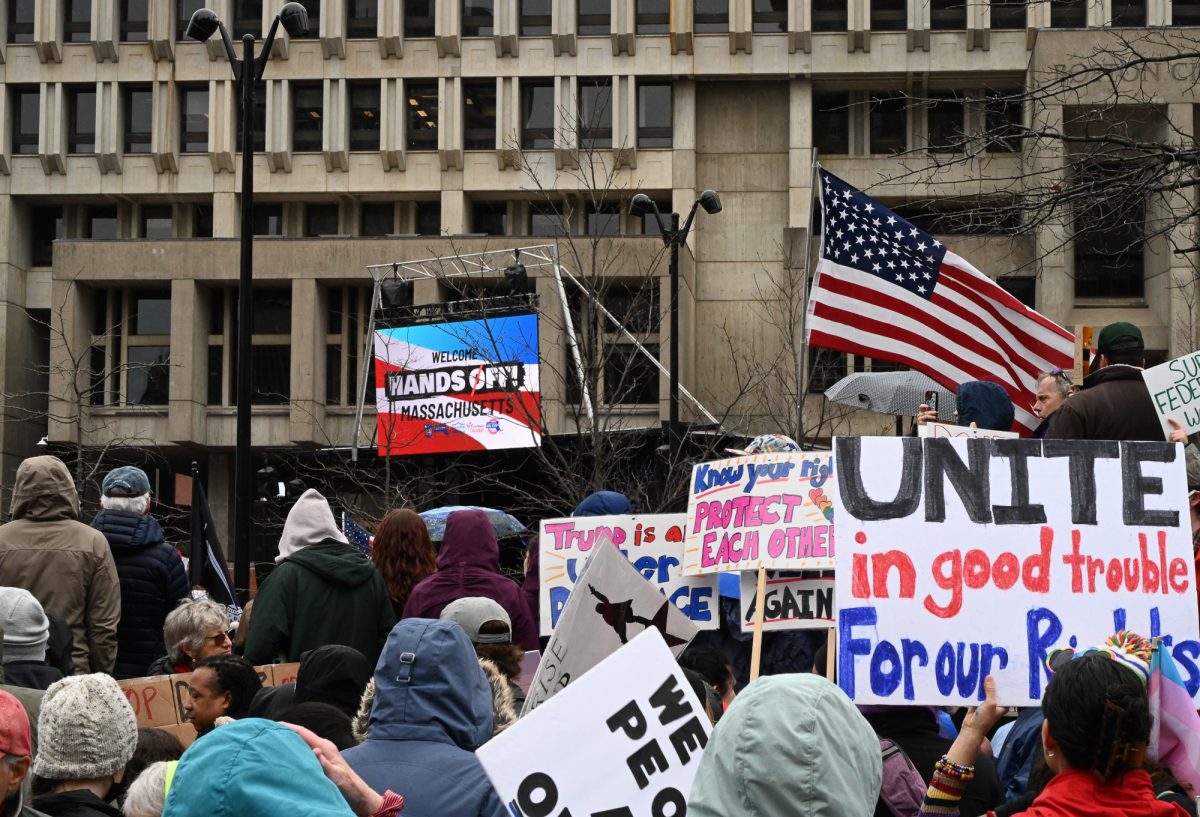Protestors belonging to the Women’s Wave 2022 nationwide protest organized by the Women’s March, a women’s rights organization, gathered outside the Massachusetts State House on Saturday to protest for women’s rights.

Ahead of the upcoming midterm elections, the Women’s March held multiple rallies around the country to solidify support for women and pro-choice candidates. The Boston march lasted from about 12 to 4 p.m.
Lauren Mangini, who recently moved from Austin, Texas to Boston, stood among the pro-choice protestors. Mangini said she is engaging with the community by “demonstrating what we believe and standing up for our rights.”
Mangini said the overturning of Roe v. Wade was not just about abortion, but rather control, as she said the ruling is also an attack on contraception and the right to healthcare.
“I don’t plan on ever getting pregnant, but I still think that any attack on abortion, on my bodily autonomy, is an attack on everything,” she said.
When asked about the significance of the Women’s Wave in Boston, Mangini said she feels it’s necessary to show up in person to protests in order to affect change.
“It’s way too easy to slip into complacency,” she said. “It’s far too easy to feel comfortable, and then you get the rug yanked out from under you.”
Stephanie Luiz, New England regional coordinator for the Students for Life organization, was gathered with the pro-life counter-protesters who could be heard chanting “pro-choice is a lie, babies never choose to die.”
Luiz said their goal is to “empower women to choose life,” “change hearts and minds on the issue of abortion” and to stand up for human rights.
“We need people to know that the pro-life movement is just getting started, and that we’re here to protect the rights of the preborn,” she said.
Prior to the protest, event host and Northeastern student Ariana Aghili said Women’s Wave protestors “wouldn’t really engage” with counter-protesters and that each group would just “keep doing their own thing.”
Zoe Fasolo, Boston resident and therapist, said she has been a clinic escort for more than 30 years. She said the Brookline abortion clinic shootings occurred near her workplace just over 25 years ago.
“I know the people who were murdered in Brookline, I know Shannon Lowney,” she said. “I mean, it’s the cliche now, they’re pro-birth, and then they just don’t care.”
She described other targeted acts fueled by anti-abortion beliefs, including when she was followed home from her workplace in the 1990s.
“I was hoping that I was going to be at this age talking with kids and going, ‘when I was your age, it was so bad,’” she said. “And now I can’t, and that makes me sad.”
Mike Heichman, a Boston resident and retired teacher, said this was his fourth protest for women’s rights in the last few months.
He said he believes it is necessary to keep taking action even in the liberal state of Massachusetts and that this is an “attack on women and on all of us, no matter where” in the United States.
“It’s turning women into sexual slaves, forcing them to have babies,” Heichman said. “I mean, that is horrendous.”
Aghili said although abortions rights is what brings people out to protest, voting equity was another key focus.
“This is one of the first big actions that’s happened since the overturn where (people) are like, okay, now I can do something about it,” she said. “Now, I can get out there and be seen and be heard and maybe effect some change by having my presence at these events.”





















































































































